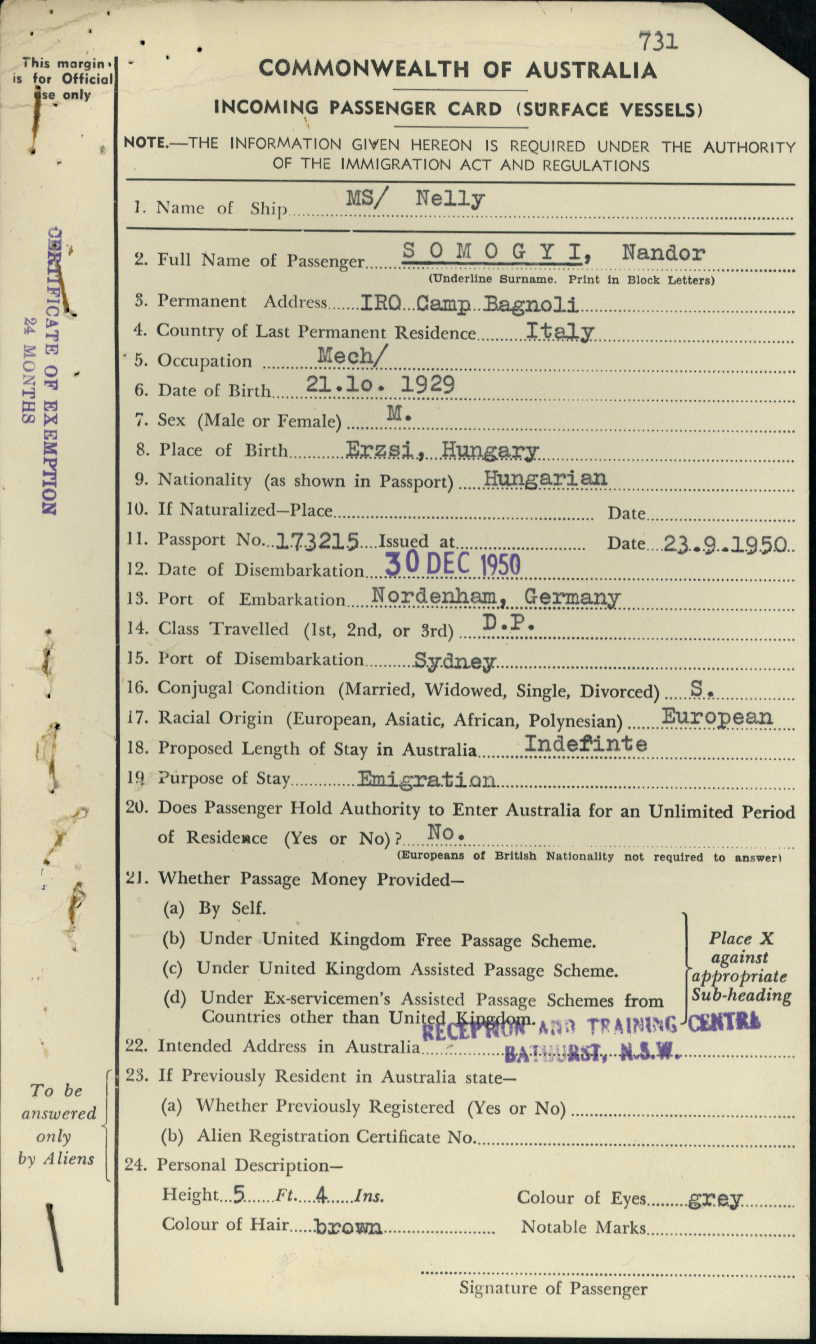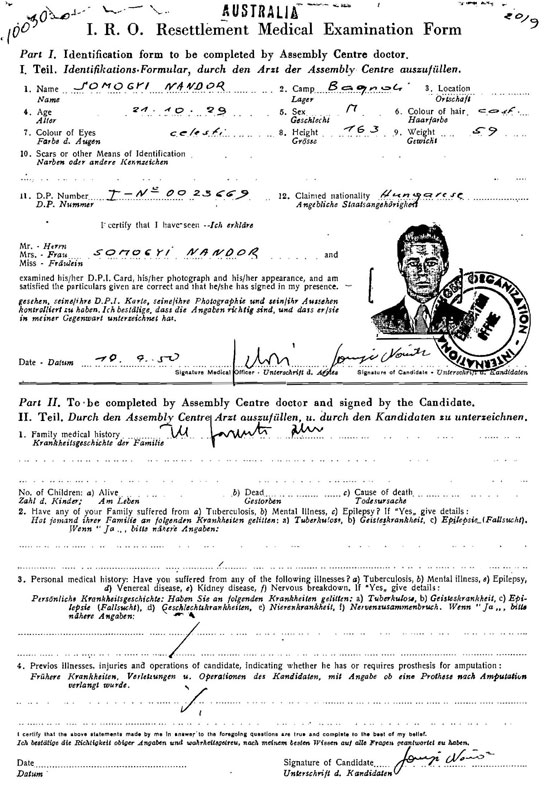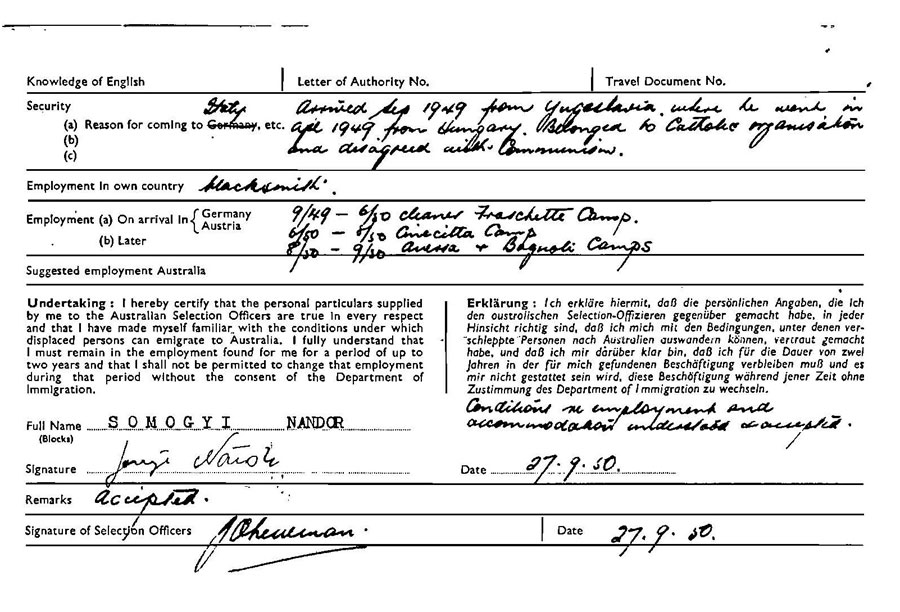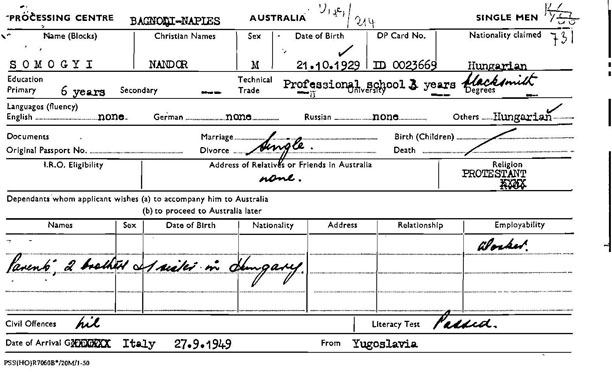The State Archive of Naples
Piazzetta Grande Archivio, 5 - Naples 80138
Telephone number +39 81 204594
Fax +39 81 204046
Opening hours Monday to Friday 8.30 a.m. to 6.00 p.m., Saturday 8.30 a.m. to 1.30 p.m.
Closed to the public in the second and third weeks of August
Refugees: Hungarians, Ukrainians; Estonians, some Czechs, Lithuanians, Latvians, Croats, Serbs, Slovenes
http://www.italyworldclub.com
Bagnoli Displaced Persons Camp researched by Pavlo Kravchenko
Jan. 2010
Between 1946 and 1951 Bagnoli was the site of a Displaced Persons camp http://en.wikipedia.org/un by the (IRO).
It housed between 8,000 to 10,000 refugees, mainly from Eastern Europe, who were being processed for immigration to various countries including Argentina, Australia, Canada, and the USA. At one time there were complaints about disease and children dying.[1] http://en.wikipedia.org/
The complex occupied by the camp was originally built to provide a home for young people in need. The facility, built in 1930's, was occupied by the Italian War Ministry until 1942 when it was turned over to a Fascist Youth Organization and, later, to the Germans for an OCS wikipedia.org/ school until 1943.[2]
In 1944 it became an Italian orphanage - Collegio Constanzio Ciano. In mid-February 1944, the 765th US Squadron occupied the area and slept there on the marble floors.[3]
A very sad and unfortunate part of the history of the refugee camp after WWII was related to Operation Keelhaul which was the last forced repatriation from Bagnoli as well asother refugee camps at Aversa, Pisa, and Riccione, of about one thousand displaced people who were categorized correctly, or incorrectly, as ex-Soviet citizens. Their ultimate fate was death or imprisonment in the Gulag wikipedia.org/of Soviet Russia.[4] wikipedia.org/
References:
The
Canberra Times. Monday 21 November 1949, p.1
http://en.wikipedia.org/
http://newspapers.nla.gov.au
http://en.wikipedia.org
http://en.wikipedia.org
Veltri,
F. (undated) AFSOUTH,1951-2004: Over fifty years working
for peace and and stability
http://www.afsouth.nato.int/organization
http://en.wikipedia.org Post
World War II — Refugee Campsand Holding Stations
http://www.istrianet.org
http://en.wikipedia.org Tolstoy,
N. (1977). The Secret Betrayal http://en.wikipedia.org/
Charles Scribner's Sons. p. 360. ISBN 0-684-15635-0 http://en.wikipedia.org
Pavlo Kravchenko lastivka@fastmail.fm
Australa
Hi Olga
Just found your site! I bookmarked it. My husband was born in the above Camp in 1948. I have all his records-immunizations, etc. But I can't find anything anywhere. Even the guys at NARA can't find anything in their own archives about who was there. I can't wait to explore your site. Just had to let you know. Thanks for hope, Laura
9, April 2009 Hi Olga
I'm trying to locate the family of Nandor (documents below). He was a
displaced person under the IRO and has a Displaced Person number. Where are
the IRO records and who do I contact? I gather maybe French archives but
don't know where.
Sydney, Australia
9/9/09 Olga,
I ran across your website on DP camps and was amazed. What a great
job.
I like you had Ukrainian parents that went thru them. Both of them have
passed away.
They were in the camp in Bagnoli, Italy and my grandfather died and was buried there. I would like to visit Italy next year and find his grave. Can you point me in a direction as to who to contact/write to to find his burial site??? Thanks and God Bless,
Tony K lostattheoffice@gmail.com
Italian search engine: http://search.virgilio.it/



